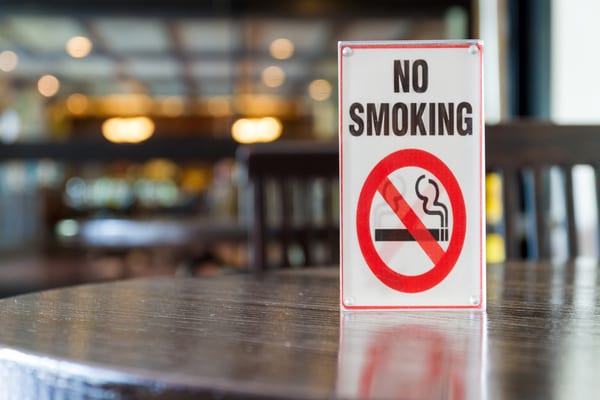Quitting smoking isn’t easy. It takes time. And a plan. You don’t have to stop smoking in one day. Start with day one. Let the Great American Smokeout event on the third Thursday in November be your day to start your journey toward a smoke-free life. You’ll be joining thousands of people who smoke across the country in taking an important step toward a healthier life and reducing your cancer risk.
History of the Smokeout
The idea for the Great American Smokeout grew from a 1970 event in Randolph, Massachusetts, at which Arthur P. Mullaney asked people to give up cigarettes for a day and donate the money they would have spent on cigarettes to a high school scholarship fund. Then in 1974, Lynn R. Smith, editor of the Monticello Times in Minnesota, spearheaded the state’s first D-Day, or Don’t Smoke Day.
The idea caught on, and on November 18, 1976, the California Division of the American Cancer Society got nearly 1 million people who smoke to quit for the day. That California event marked the first official Smokeout, and the American Cancer Society took it nationwide in 1977. Since then, there have been dramatic changes in the way the public views tobacco advertising and tobacco use. Many public places and work areas are now smoke-free – this protects people who don’t smoke and supports people who smoke who want to quit.
Lung Cancer Awareness Month
Along with the Great American Smokeout, November is also Lung Cancer Awareness Month. Did you know that lung cancer is by far the leading cause of cancer death in the United States? In fact, more people die of lung cancer than of colon, breast, and prostate cancers combined each year.
While people who have never smoked can contract lung cancer, smoking cigarettes is the biggest risk factor for lung cancer and causes about 80% of deaths from the disease. According to the American Cancer Society (ACS), about 34 million American adults still smoke cigarettes, and smoking remains the single largest preventable cause of death and illness in the world. Smoking causes an estimated 480,000 deaths every year, or about 1 in 5 deaths.
While the rates of cigarette smoking have declined over the past several decades, from 42% in 1965 to 14% in 2019, the gains have been inconsistent. Some groups smoke more heavily or at higher rates and suffer disproportionately from smoking-related cancer and other diseases. These populations tend to be those who experience inequities in multiple areas of their lives, including those at lower socioeconomic levels, those without college degrees, American Indians/Alaska natives, African American/Black communities, LGBTQ communities, those in the military, those with behavioral health conditions, and others.
A Good Plan and Support Increase Chances of Success
No matter your age or how long you’ve been smoking, quitting improves health both immediately and over the long term. Giving up smoking is a journey, and it can be hard, but you can increase your chances of success with a good plan and support. Getting help through counseling and medications doubles or even triples your chances of quitting successfully.
Research shows that people who smoke are most successful in their efforts to stop smoking when they have support, such as:
- Telephone quitlines
- American Cancer Society Freshstart Program
- Nicotine Anonymous meetings
- Self-help books and materials
- Smoking counselors or coaches
- Encouragement and support from friends and family members
Using 2 or more of these measures to quit smoking works better than using any one of them alone. For example, some people use a prescription medicine along with nicotine replacement. Other people may use as many as 3 or 4 of the methods listed above. Professional guidance can help you choose the approach that’s right for you.
The American Cancer Society Can Help
Quitting may not be easy, but you can do it and the American Cancer Society can help. The ACS is available 24 hours a day, 7 days a week to provide support, from questions about quitting smoking to looking for national or local resources to help you quit. To find out more, visit cancer.org/smokeout or call 1-800-227-2345.
And, since it’s Lung Cancer Awareness Month, there’s no better time than now to start a fundraiser to help save lives. The funds you raise could go a long way in aiding the ACS in their education efforts to get people over age 50 to talk to a doctor about their risk for lung cancer and if annual screening is right for them.
—
Photo Credit: Trum Ronnarong / Shutterstock.com
